April Fools! Watch out for these food label tricks

This article is free for a limited time. Subscribe to access every article and recipe.
If you’re a food marketer, no need to wait around for April 1st. Tricky labels and claims can help pad your bottom line 365 days a year.
Green screen
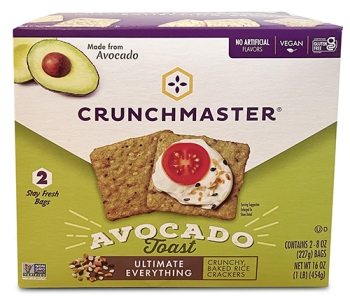
New Crunchmaster Ultimate Everything Avocado Toast crackers are “Made from Avocado,” says the package.
But the crackers are mostly a blend of low-fiber refined flour and starch. They have more rice flour and potato starch than avocado oil, more “everything” seasoning than avocado powder, and no other avocado.
Avocado snacks that go light on the avocado may not look so green. No worries. The crackers toss in a little spinach powder for color. Ta-da!
Crunchmaster? More like a Disguisemaster.
Sugary oil foam
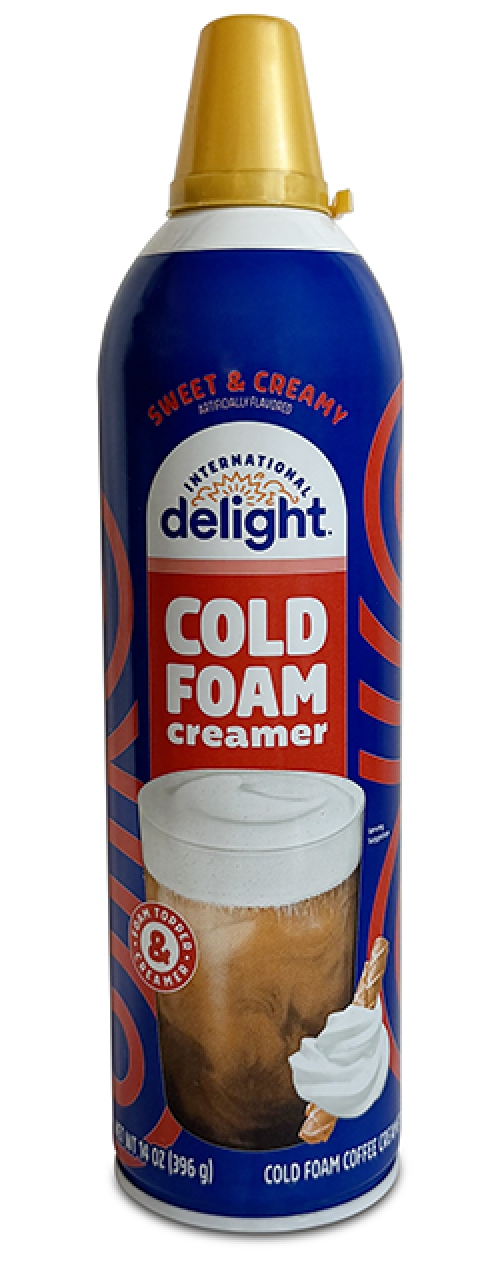
At a coffee shop like Starbucks, the trendy “cold foam” for cold brew coffee is a sweetened blend of cream and milk (plus additives). But International Delight’s Sweet & Creamy Cold Foam Creamer is largely a delightful cream-less mix of water, sugar, and palm oil, plus a touch of sodium caseinate (a “milk derivative”), dipotassium phosphate, carrageenan, sucralose, sodium stearoyl lactylate, and more. Mmm.
The Nutrition Facts shows 3 grams of added sugar. But if you top your coffee with more than a modest two-tablespoon “serving”—say, anything like the thick foam layer pictured on the creamer can—the added sugar will keep piling up.
Dishonest gummies
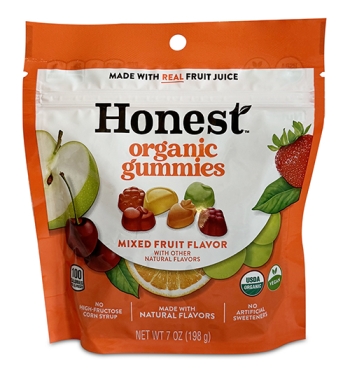
Honest Mixed Fruit Flavor Organic Gummies are “made with real fruit juice,” touts the bag.
Really? The ingredients list starts with sugar and tapioca syrup. Then come more than half a dozen juice concentrates (like apple, white grape, and strawberry). But they’re not “real fruit juice.”
That’s why, according to the FDA’s labeling rules, most of the sugar in juice concentrates that are added to foods counts as “added sugar.” And it explains why a serving of these gummies has 12 grams of added sugar—a quarter of a day’s max.
Is it any surprise that Honest Gummies are made by Hershey? (The company licensed Honest’s trademark.) It’s fruit-flavored candy...made by a candy company.
Veggie baloney
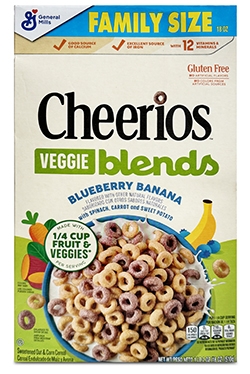
New Cheerios Veggie Blends Blueberry Banana with Spinach, Carrot and Sweet Potato Cereal is “made with ¼ cup fruit & veggies* per serving.”
Yet it has more added sugar (7 grams) than any of its “fruit” or “veggies” (sweet potato powder, carrot powder, banana purée, blueberry purée concentrate, and spinach powder).
And where does that asterisk lead? We found it...in teensy print squeezed onto the side of the box: “*Cheerios Blends cereal is made with fruit puree and vegetable powder. See complete list of ingredients. It is not intended to replace fruit or vegetables in the diet.”
Not that General Mills was trying to fool anyone. Surely, no one would be confused by the “Veggie,” two fruits, and three vegetables on the box front. Nah.
Boost and switch
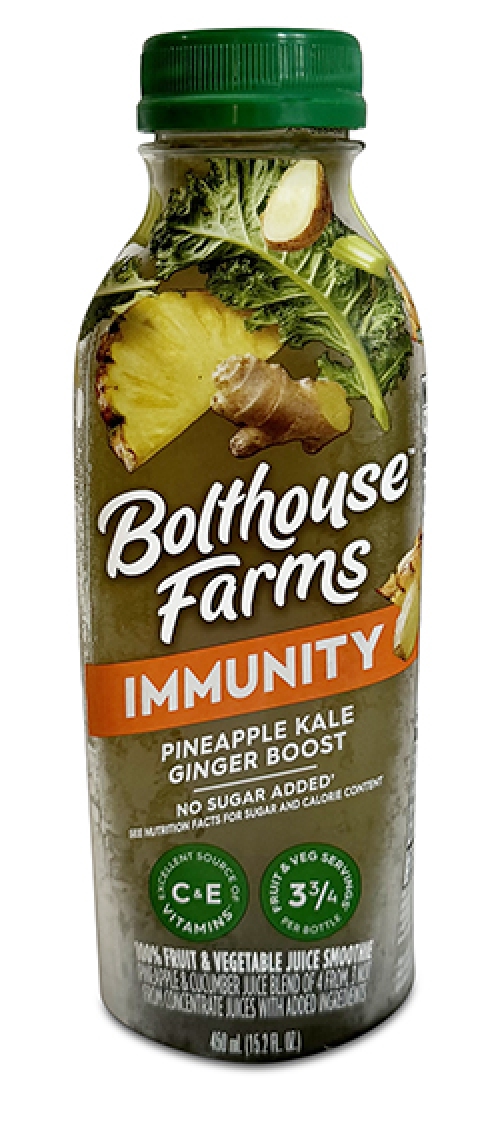
Bolthouse Farms Pineapple Kale Ginger Boost Juice Smoothie has more pineapple, cucumber, and apple juice than ginger or kale juice. So why not call it Pineapple Cucumber Apple Boost...and swap the ginger and kale pictures for cucumbers and apples?
Marketing. Greens like kale sell. So do vague “immunity” claims. If your customers get only a dash of the nutrient-rich vegetables they paid for, you’re doing April Fools right.
Pop con
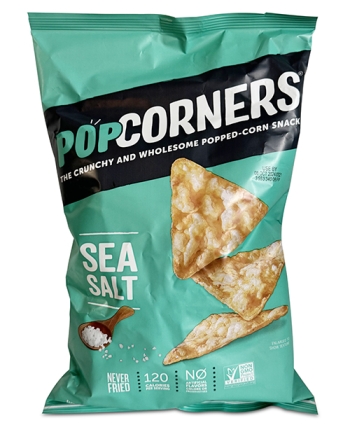
Heard that popcorn is a healthy snack because it’s a whole grain? It is. Just don’t confuse it with “wholesome” Popcorners, which call themselves a popped-corn snack.
The ingredients list says “yellow corn.” But that’s corn grits, the company told us...not popcorn. And corn grits aren’t a whole grain. That explains the paltry “less than 1 g” of fiber per serving. Real popcorn, anyone?
BYOP
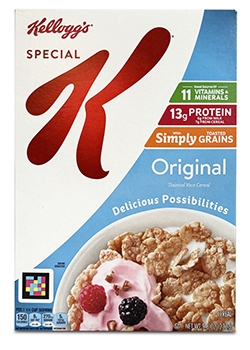
Does Kellogg’s Special K Original Cereal have “13g PROTEIN,” as the box touts? That depends on your milk.
Special K’s protein hits double digits by adding the “6g from milk” (¾ cup of skim) to the “7g from cereal,” according to the smaller print.
And that’s not Kellogg’s only case of protein puffery. Its Smart Start Original Antioxidants Cereal says “11g OF PROTEIN,” but the cereal only supplies 5 of those grams.
Want more protein in your cereal? A serving of Kashi Go Original Cereal has a nice 11 grams of protein—before you add any milk—for only 30 more calories than Special K.
As for the “simply toasted grains” in Special K Original, they’re marketing speak for refined (that is, white) rice plus wheat gluten and germ.
Zero whole grains and an average dose of protein? That’s not so special.
Serving scam
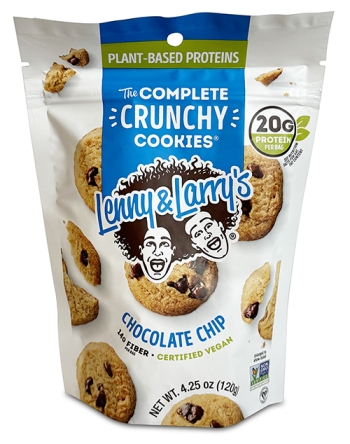
Lenny & Larry’s The Complete Crunchy Chocolate Chip Cookies have “20g protein” and “14g fiber.” Whoa.
Oops. We almost missed the small “per bag” below each number. That’s about 3½ servings...or 20 cookies, 540 calories, 5 teaspoons of added sugar, and 13 grams of saturated fat (two-thirds of a day’s max).
Not exactly lean protein. A McDonald’s Big Mac has more protein (25 grams) for about the same calories (590) and sat fat (11 grams).
Lenny & Larry simply mix protein powder in with the cane sugar, palm oil, white flour, and chocolate chips and add inulin, a processed fiber. The cookies don’t have a speck of whole grain. What’s “complete” about that?
Clever cuisine
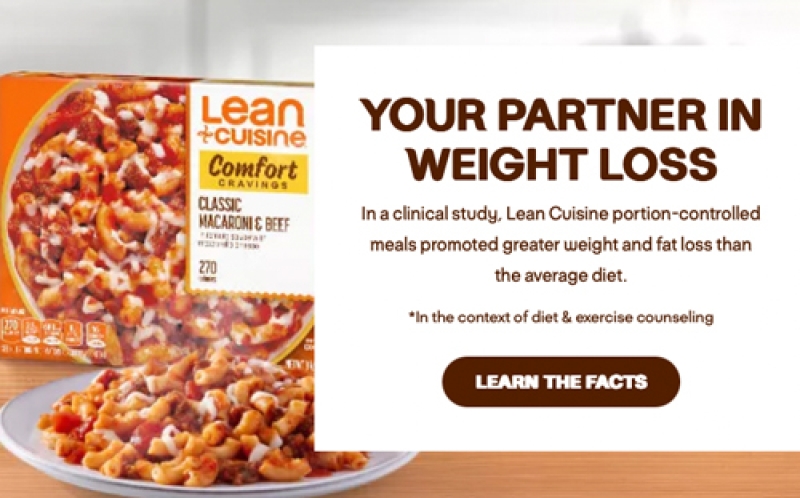
“Your partner in weight loss,” says the Lean Cuisine website. “In a clinical study, Lean Cuisine portion-controlled meals promoted greater weight and fat loss than the average diet...in the context of diet & exercise counseling.” A few details:
- Everyone got diet counseling and exercise advice, but only the Lean Cuisine group got portion-controlled lunches and dinners. Is it any wonder that, after three months, they lost about 5 pounds more than people in the “average” diet group, who got no low-calorie meals?
- Nestlé (Lean Cuisine’s maker) funded and helped design the study, and a former Nestlé Research employee who consults for the company co-wrote the paper describing its results.
Bottom line: Any plan that cuts portions of high-calorie foods should help people lose weight. But there’s nothing unique about Lean Cuisine, especially its veggie-poor dishes like mac & cheese or macaroni & beef.
Our advice: To feel full on fewer calories, pump up the volume! Add veggies and fruit to bulk up your meals.
Tags
Topics
More on deceptive marketing
How supplements distort science to sell
Supplements

Is this juice? Or is it alcohol?
Industry Accountability
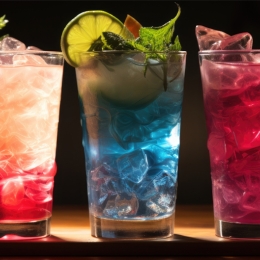
Don't be duped by these food ads
Fact vs. Fiction

Is that food really "carbon neutral"?
Sustainability

Be wary of drug ads
Fact vs. Fiction


